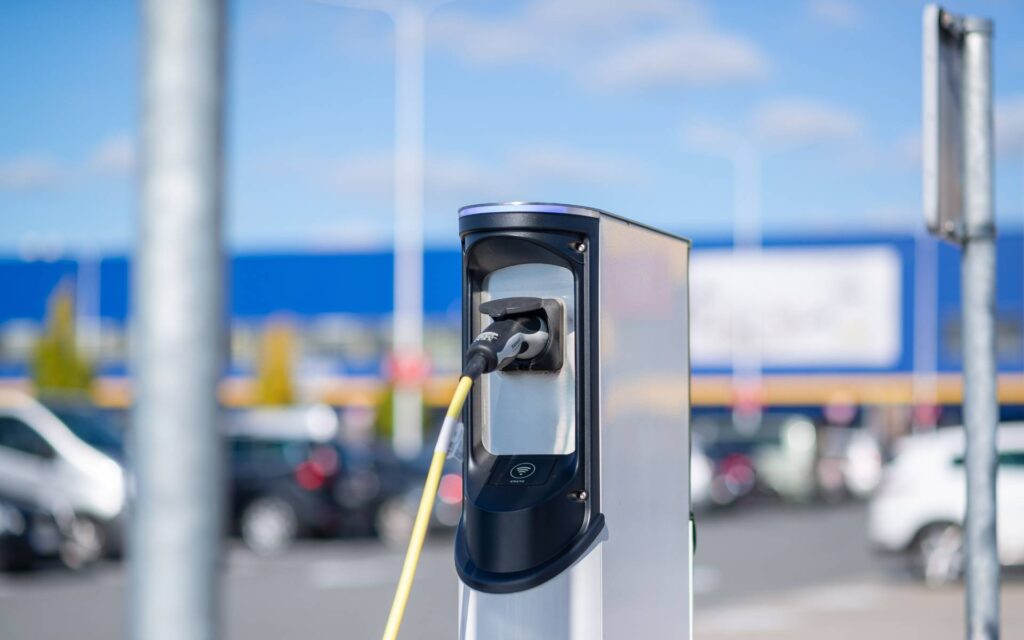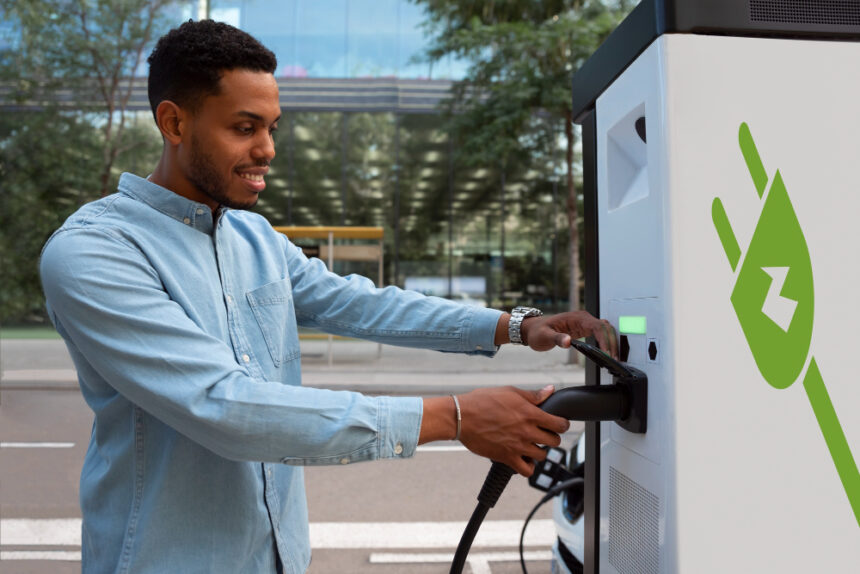As electric vehicles (EVs) become more mainstream, real estate investors are looking for innovative ways to enhance property value and attract eco-conscious tenants or buyers. One of the most impactful strategies is integrating EV charging infrastructure. With governments worldwide pushing for greener transportation and an increasing number of consumers shifting to electric cars, properties equipped with EV charging stations are becoming more desirable.
The Growing Demand for EV Charging Infrastructure
The rapid adoption of electric vehicles has created a surge in demand for accessible and convenient charging solutions. According to industry reports, EV sales are expected to continue rising, making the need for an extensive charging network more urgent than ever. For property owners, this presents a golden opportunity to stay ahead of the curve by incorporating EV-friendly features that cater to a growing market segment.
Real estate properties—whether residential, commercial, or mixed-use—can significantly benefit from installing EV charging stations. Tenants and buyers increasingly prioritize convenience, and access to a reliable charging station can be a decisive factor in their choice of residence or workplace. Moreover, businesses that provide charging solutions can attract more customers, increasing foot traffic and fostering brand loyalty.
Boosting Property Value and Rental Income
Adding EV charging infrastructure is not just an eco-friendly initiative; it also enhances the marketability and financial returns of real estate investments. Properties with built-in charging facilities often command higher rental rates and resale values. As sustainability trends continue to influence buyer and renter preferences, landlords and investors who adopt green technologies gain a competitive edge.
Furthermore, governments in many regions offer incentives, tax credits, and rebates to support the installation of EV charging stations. These financial benefits can help offset the initial investment, making it a cost-effective way to future-proof a property while appealing to environmentally conscious tenants.
Commercial Real Estate: A Smart Investment in Charging Infrastructure

The commercial real estate sector stands to gain immensely from incorporating EV charging stations. Shopping malls, office buildings, hotels, and retail centers with dedicated charging stations can attract EV drivers who seek convenient locations to charge their vehicles while they shop, work, or dine. This added amenity can set a property apart from competitors and enhance overall customer experience.
In addition, installing EV chargers can open new revenue streams. Many property owners monetize their charging stations through pay-per-use models, subscription plans, or partnerships with EV charging networks. By doing so, they not only increase foot traffic but also generate passive income from the growing number of EV users.
Residential Properties: Enhancing Appeal for Homebuyers and Tenants
For residential real estate investors, installing EV charging infrastructure is a forward-thinking strategy that can significantly boost property appeal. As more homeowners and renters transition to electric vehicles, the presence of a home charging solution becomes a highly attractive feature. Properties with dedicated charging stations are seen as more convenient and future-ready, making them more competitive in the real estate market.
Multi-family housing units, in particular, can benefit greatly from shared EV charging stations. Apartment complexes and condominium associations that invest in this technology can attract long-term tenants, reduce vacancy rates, and position themselves as sustainable living spaces that align with modern lifestyle trends.
Government Incentives and Regulations Supporting EV Charging Expansion
Many governments worldwide are actively supporting the expansion of EV charging infrastructure through incentives, mandates, and subsidies. Property owners who take advantage of these programs can reduce installation costs and benefit from financial perks while contributing to environmental sustainability.
For instance, the U.S. federal government, along with many state and local authorities, offers rebates for businesses and homeowners installing EV chargers. In Europe, regulations are becoming stricter, requiring new buildings to be equipped with EV-friendly infrastructure. By staying informed about these policies, real estate investors can make strategic decisions that align with both profitability and sustainability goals.
The Future of Real Estate and EV Charging
As the automotive industry continues its shift toward electric mobility, real estate developers and investors must adapt to meet the needs of future consumers. Properties that fail to accommodate EV drivers may risk losing relevance in an evolving market. On the other hand, those that integrate EV charging infrastructure stand to gain increased desirability, higher occupancy rates, and stronger long-term returns.
Looking ahead, the integration of smart charging solutions, solar-powered charging stations, and wireless charging technology will further revolutionize the real estate landscape. By staying ahead of the curve, property owners can position themselves at the forefront of an industry transformation that is both financially and environmentally rewarding.
Conclusion: Investing in the Future of Real Estate
Incorporating EV charging infrastructure into real estate investments is more than just a trend—it’s a strategic move toward long-term profitability. With rising EV adoption, increasing government support, and shifting consumer preferences, properties equipped with charging stations are set to become highly sought-after assets. Whether in residential or commercial real estate, investing in EV-friendly solutions ensures sustainability, enhances property value, and secures a competitive advantage in a rapidly changing market.
For real estate investors looking to future-proof their properties, the time to act is now. By integrating EV charging infrastructure today, they can create a more appealing, sustainable, and profitable investment for the years to come.
